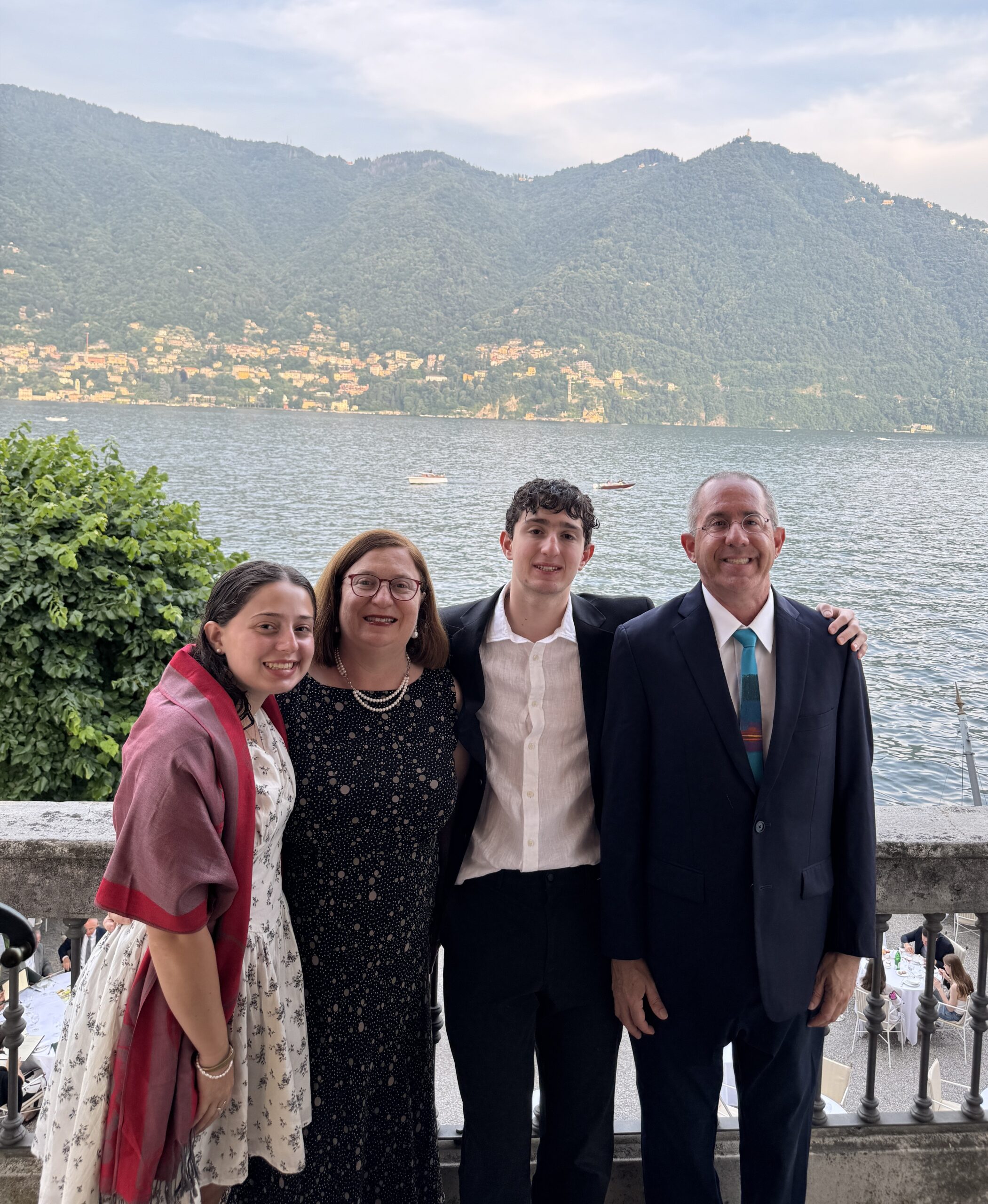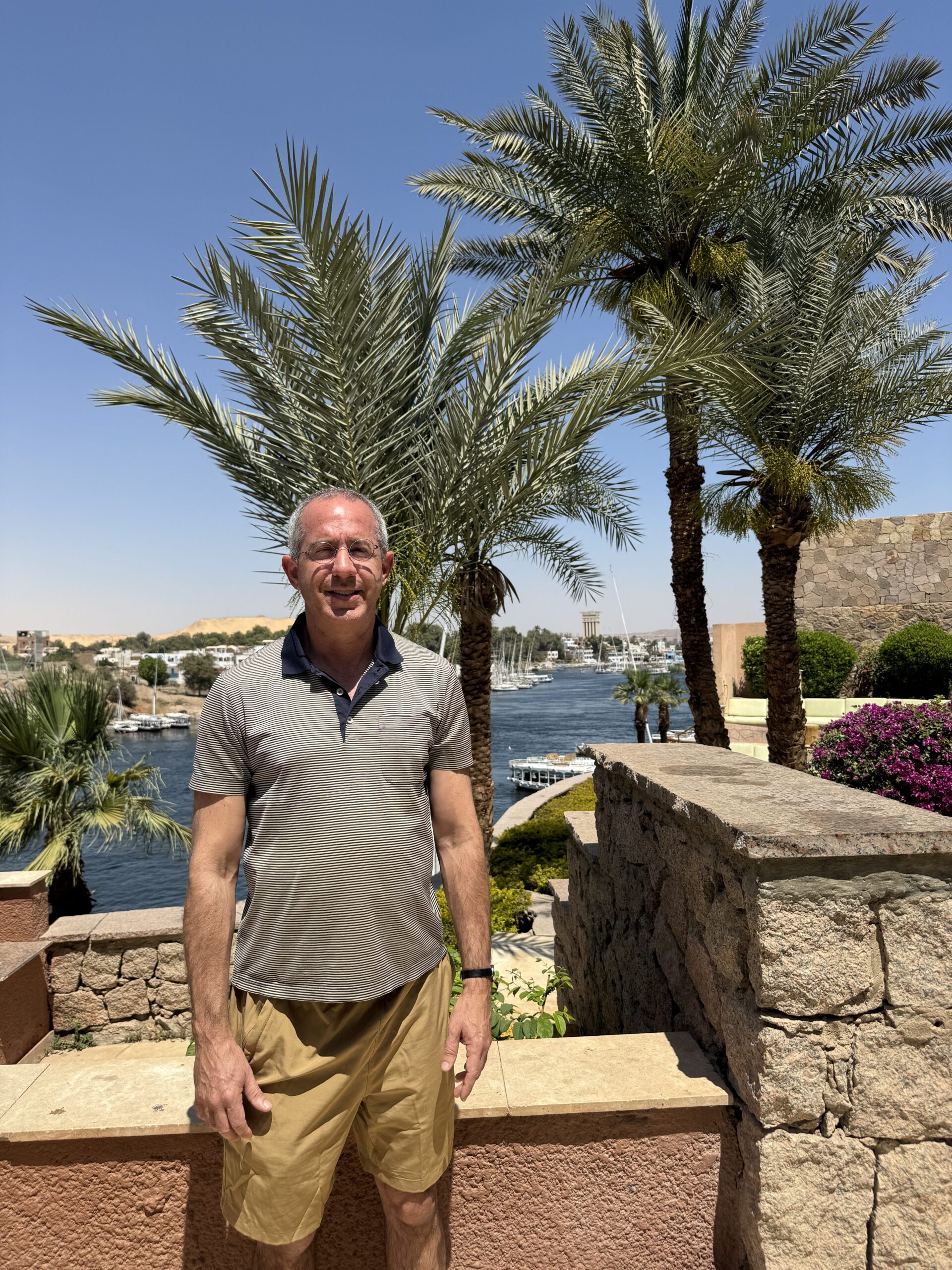Welcome to 2003. Predictions made for 2002 were better than usual. I said that Saddam would be gone by now, but you can tell that the Saudis are getting off the fence and even Iraqis are resigned to his coming defeat and ships are already at sea. I am quite satisfied that very little bad happened this year; I was prepared for much worse. 2003 is a cataclysmic year; if good things happen, it will lead to profound change. If good things don’t happen, it may be quite a few years before things change for the better. I was not optimistic a year ago, but I am now. Things might happen this year in Arabia, Palestine, the war on terrorism, and in my personal sphere. And I have never subscribed to most of the gloom and doom predictions of people in the affected neighborhoods. (Even curmudgeonly Oded in Jerusalem is happy about something; I have to call him and find out why, before he changes his mind and reverts to form.) Here’s a start – how about getting a new Pope; John Paul looks like he is out of it and the Catholic Church needs a lift from its annus horribulus (excuse my lousy Latin but you get the idea).
If it means anything to you, I am going out of country on holiday January 26 for a few days; I expect that the opening days of the war will look better from a resort in the Cayman Islands on BBC World.
A few Disclosures about Global Thoughts
I’m not sure how many people are reading this stuff but it’s more than I thought. I know this because when I travel people I don’t know tell me they read this stuff. The site is not advertised but I assume that Friends of Ivan are passing these links along to their friends. It’s interesting to find out who out there is reading; people don’t send me e-mails saying “I read your stuff.” But it’s good to know that my time and effort are not being wasted. It is a good vibe for anyone who hopes that individuals can make a difference in the world. Please keep sharing your thoughts and ideas with me; I consider them and they get passed along in this way.
As long as you are reading this stuff, I should pause as I do once in a while and make you aware of a few things that go on behind the scenes that make up what you read here.
It would be easier to make up a lot of what I report, than to actually try and sift through all the data I read and collect in my travels and then try to calibrate it in a balanced way to satisfy the very broad audience that reads this stuff and then reach some sort of conclusion that gives you news you can use. I told Tom Friedman of the New York Times last month that the difference between he and I is that I can write down and share what I know; he has to censor a lot of what he knows. There are a few people doing what he does; there is almost nobody in the world doing what I do.
You’d be surprised what this costs. I estimate this year about $50,000 in hard and soft costs in getting the stories that turn into GlobalThoughts. The travel budget this year alone was about $35,000. After a 30 day tour in which notes are taken and reviewed daily, it takes about 40 hours to prepare the journals, type and then edit them, and then create the postings of the journals and photos as well as the conclusions of thought overall.
You should know that I do check with people who are in sensitive situations before I post stuff, and sometimes I withhold information or specifics on their request. Before I make a speech about representative opinions, I pass it around to people and ask for their suggestions. I usually put travelogues before people I’ve visited while I’m in the editing process to make sure the information is correct. I read all opinion articles several times from different viewpoints to see if people will think they are fair, and I am pleased that the Number One thing people say they like about Global Thoughts is that they feel it is fair and subject to influence by what I find out as I continue along life’s road. It is at once Left, Right, Center and Off The Wall. I also read previous articles to try and avoid being repetitive or predictable, something I wish the Tom Friedmans of the world would do more often.
I do take suggestions, but hold back no punches and insist on not holding back facts and figures. As long as it is fair and accurate, the gist of the point gets posted to Global Thoughts. I don’t insult your intelligence as a reader and consumer of information and have never allowed any commercial consideration to influence the design or the content of Global Thoughts.
Predictions
India/Pakistan – Money rules. People want industry, not war and instability. Both India and Pakistan will not go over the edge here and they are being led by responsible parties. Because there are still dictators in North Korea, China and the Arab world, we still can’t be sure those countries will not do self-destructive things or go after their neighbors.
Korea – I need to understand why we should care, beyond the fact that we fought a war there 50 years ago. Maybe the Americans ought to just pull out and let the Koreans, Japanese and Chinese deal with this. The South Koreans don’t seem to care for us and they feel they are doing us a big favor by paying our expenses and having us sitting on their territory. My South Korean drycleaner said to me this week that he hopes the North Koreans get the bomb. So I figure let the North Koreans go and take over South Korea and see if he changes his mind about it. In the end, I am counting on the Chinese to deal with North Korea; if they don’t pull them into line, the Japanese will start spending money the Chinese don’t have to build a nuclear defense and rearm its military. The Japanese have been made fools of earlier this year by North Korea and everyone in this region mistrusts everyone else. (Which is why they all want the US in there. Remember the Philippines? They told us to get out; then when we said we were leaving they didn’t want us to leave, and then a few years after we left they invited us back in.)
Economy – I think the Dollar will rebound after the war and that Europe and Japan as a whole are lousy bets this year. The UK seems to be doing well enough. Lorenzo in the UK gave me a sense that companies are becoming more rational in their spending; a few years ago they spent too much, then they stopped spending completely, now they are spending wisely. So that’s a good sign. Last year I thought the US capital markets would go up; they went down. But I told my readers to stay out of the market and I have been in cash this entire year. I have moved money back into brokerage accounts in order to be able to buy stocks this year, but so far I don’t have any recommendations. If the war goes well and we stop thinking there will be an Osama behind every tree, the markets will go up again. I have been holding Euros this year and it has been a great investment; I don’t know that the Euro will continue to do as well in 2003, but so far it still keeps appreciating against the Dollar.
Cyprus – this will be the year they resolve the Cyprus problem. Nobody wants to continue the spat. Even the Turks are telling the Turkish Cypriot leader to get with the program.
US Presidential Hopefuls – I like Lieberman; I think he is sophisticated and straight-forward, and is what people are in the mood for. Arabs shouldn’t write him off as pro-Israeli because he is likely to be tougher on Israel than Bush is, and everybody thought Bush drank Saudi oil for breakfast. Lieberman was just hosted by Saudi Arabia’s royal family and as far as I can tell the visit went very well.
Iraq – The Saudis are no longer in doubt that the Americans are going to war. As I said before, they would fall into line once they were sure they wouldn’t be left to hang by themselves. In a few months, we will deal with a new Iraq. Iran and Saudi also have changes coming, but not so quickly, at least not this year.
Israel/Palestine – Barghouti stays in jail. Watch Dahlan in the coming year. If Arafat is still in office a year from now, he will probably be there 5 years from now. He should have been gone by now. Sharon will win big, but he will form an unstable right-wing government that won’t last past a year, as long as Arafat is replaced by someone reasonable. If power-hungry factions of the Labor Party succeed in throwing out Mitznah after the elections, cancel that last sentence and Labor will join a national unity government. The Shinui party will get a lot of votes. They are a fairly centrist party that is also anti-religious. They will probably wind up in the next government. They are a protest vote party; the party is more against things than for things. I have been noting now for several years that the biggest protest in Israel right now is against the religious parties.
The concept of the Trusteeship hasn’t been discussed on this site yet, but it’s making the rounds of policy wonks. At the recent Herzliya conference, it was discussed by various people and it makes some sense. The idea is that the Palestinian Authority is not ready for statehood but should in the meantime be run for a few years by the UN or an international consortium and nursed to health while its institutions are built up. The Israelis were initially hostile to international involvement but they are warming up to it now. Here is a strange thought – Hamas is popular because it is not corrupt and distributes goods and services efficiently. The people running Hamas in the territories are not quite as fanatical as believed and, at least in Lebanon, they have made the transition to governance once they had power and responsibility. I think if the Israelis think the PA is a lost cause, they should try and open up dialogue with some of the Hamasnicks. As it is, the Israelis created Hamas in the 1980’s as a counterweight to Arafat. I don’t know where things will wind up, but it makes sense to deal with people that have popular support if they can make the transition from revolutionaries to administrators. If the Israelis can’t make peace, they should look at making long-term truces. Some wise people have suggested this to me during the course of my travels this year. Tourism to Israel can’t be that down in the dumps – right now it’s impossible to get hands on a cellphone if you’re going there because they’re all sold out and in any event tourism there only accounts for 3% of the economy. This is one important reason why Sharon is so popular; people are voting for him on the security issue because they don’t really believe the economy is in such dire straits.
A few random thoughts to close out the year:
1. Every time I go to Europe I always wind up looking at cathedrals. You’d think people there go to church a lot. Turns out that 47% of Americans go to religious services at least once a week; only 20% of those in Western Europe do (in Eastern Europe it’s 14%).
2. A thought about Sabbath – I think we are becoming nuts about minutiae as sabbath-observers try to factor in modern technological conveniences, and in the process losing track of what we really should be focused on. Are the laws of Sabbath really about turning lightbulbs on or off or should we redefine the concept of Rest to follow what I believe is original intent which is forbearance from acts of creation (Six days He created, and on the Seventh day He rested.). Under this train of thought, the point is to refrain from composing essays or music, but not to obsess about how you deal with hot water and a tea bag.
3. Fewer people are traveling with laptops. They are tired of lugging them about and being stuck at security checkpoints. But hotels have built up in-room internet connections and still have antiquated business centers with dial-up connections. There is a disconnect here.
4. Over the last 500 years, the cost of things haven’t really changed in relative dollar terms. The Economist had a year-end article on diplomatic per diems 500 years ago and you’d be surprised to find that a shirt still costs $30 and a shoeshine a few bucks.
5. On Bahraini TV there was the following news item: “Minister XYZ chaired a meeting at which he said that there were many things on the agenda to discuss.” End of story. This is an important glimpse as to why things are so wacked out in that part of the world and will change.
6. If you thought that the world was becoming less elitist in the modern economy, it’s true that you don’t need to go to Oxford or Cambridge to succeed in the UK as much as it used to be. But it is my experience that elites are still making the decisions and, if you can succeed, you can join the elites that decide things. About 250 special ops soldiers decided the Afghan war and will decide the Iraq war. At the Limmud conference, I was surprised to see how individuals are making a difference around the world and it makes me think that Global Thoughts is not a waste of time or energy. The moral of the story is stay in touch and stay engaged.
7. It’s not the narrowness of your system that counts, but the narrowness of your mind. Eight years ago there was no e-mail or internet in Jordan and so it was no contest. But today it’s an open field for most of the world and it mostly depends on your budget if you have broadband or not. You can sit in the U.S. and read only the internet sites you want, or you can sit in Jordan and read anything you can get your hands on. Who do you think will wind up more informed and the more interesting person to have dinner with? Credit the Israelis with putting tons of media on the Internet in the English language so that everyone can read it; Al-Jazeerah is still not available on-line in English and neither is Al-Hayat.
8. You think you can get security by building walls and making things terror-proof? No way. Humans are clever enough to penetrate any shell from the inside or the outside. Either someone will take a vodka bottle from the duty free cart, break it, pour the vodka on the airplane carpet, set it alight with a match, burn the plane and then attack with the cracked bottle. Or someone will just fly a small plane into a larger plane. Even the Russkies — who have no CNN or civil libertarians to deal with — couldn’t keep the Chechnyans away from their supposedly terror-proof police headquarters in Grozny which was utterly destroyed this month. We can’t guarantee security by making peace with 100% of the world, but we can get a lot closer by making peace with 80% of the world and getting them to put pressure on the few within their midst that still want to make trouble. Right now, the West has a problem with Security but insists on dealing with it on terms that leave too many ordinary people in the world feeling resentful and unmotivated to cooperate. It won’t work this way. The West will survive based on engendering fear if not love, but its development will be stymied by the hostility and the fear that exists on both sides of the divide. I have discussed this year several different ways in which a more dynamic foreign policy should exist. Here are two statistics to ponder: The US spent $1 billion this year in Afghanistan on the military component; $25 million on aid to the country. As far as I know, the military campaign there is not much to talk about. The second point: The Iraq war will cost between $50-100 billion; the value of the Iraqi oil contracts are about $40 billion. To say that the U.S. is going to war over oil is a bit overstated because it doesn’t really work on the numbers. But the disruption to the overall economy from the potential leakage of weapons of mass destruction would be much higher and that’s the economic rationale for knocking Saddam out (think of what 9/11 cost the economy). Here the point is that the real cost is instability due to fear and that’s what I meant earlier in this paragraph by stymied development in the West.
9. I’ve done a lot of traveling this year. I avoid Holocaust museums but you can’t go to any history museum in Europe today without it having a Holocaust portion in it. I’ve tried to make it a point this year to mention the disproportionalities involved and to reflect on them. Here’s a thought – I was raised to abhor the idea of Jews being led like lambs to the slaughter. That’s what I was told was what happened to Jews in the Holocaust. Whether or not it was true is beside the point. What has changed in 50 years? Today, Jews have their own country and have one of the best armies in the world, but they are afraid and sit on their side of the wall with their guns waiting to be attacked. They are waiting for smallpox, nuclear weapons, and nerve gas. Kids in school are being drilled on wearing gas masks and being told to instruct their parents at home. They don’t even want to give people the benefit of the doubt anymore; people crossing from Gaza are shot on sight, I am told by Israelis. They feel trapped and they get killed every day even inside their bedrooms hunched in their nurseries over their kids in Leftwing kibbutzes, in rabbinical seminaries having Friday night dinner in the territories or at weddings and Passover Seders in hotels. They keep Arafat inside a compound surrounded by tanks and chickenwire but accuse him of being behind every ill-event but feel powerless to finish him off (or else there is some big secret none of us can get to the bottom of here, and we hope that it’s not all about the money people at the top are making). Are they really that better off today than they were 50 years ago? Being a fearful occupier holding possession is 9/10 of the law perhaps, but it is not resulting in anyone having a life. I am waiting for people to come to the conclusion that less means more for the future of Israel. I wouldn’t want to go back to life 50 years ago, but there is an equilibrium to be reached out there somewhere in this return to Zion.
10. I would call myself a self-doubting Jew. And I would consider that a compliment. One must doubt in order to adapt and survive. Survival theory gives the most points to those that are not the strongest but the most adaptable. If you are so sure you are right and everyone else is wrong and the cause of your troubles, you are unlikely to come up with any ideas to make any progress. That doesn’t mean that change for the sake of change is better than a status quo that works. But I wouldn’t join 6 million Jews in Israel today who are all supporting Sharon because they’ve become convinced that there is no future, nothing they can do, and that everything is the other side’s fault and that nothing can be done until the other side changes. That leaves no room for initiative on the Israeli side. Nope. I can’t sit there and be another Victim in Waiting unless I can have a say in making things better (and I have no sense that me moving there would ever affect Israeli natives). The Arabs haven’t very adaptable to change and because they have been so sure that all their evils are someone else’s fault, it has been easier to demonize the enemy than soul-search among their own. But that’s changing now and it is something not to be ignored. My personal feeling is that the Israeli-Palestinian problem there is solvable on the people-to-people level and that it’s the leaders at the top that are the problem. So yes I will stay in doubt about that and all sorts of things because I think we can and should do better.
I know that 2003 looks scary from wherever you sit going in, but I think it will look better on the way out. I have been waiting for the Big Bang to happen and I expect the constellations are coming into alignment. So get your money back into your brokerage accounts and look for opportunities. Here’s wishing you the best of good buys in 2003!





